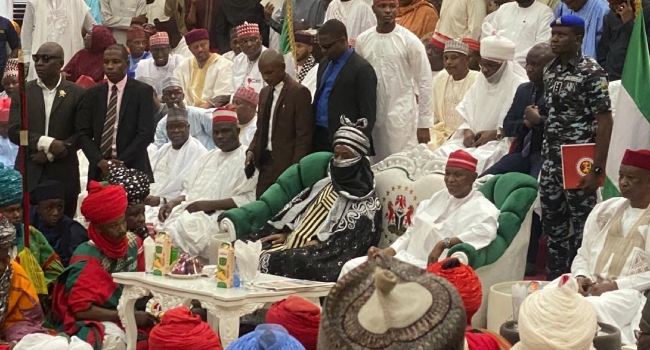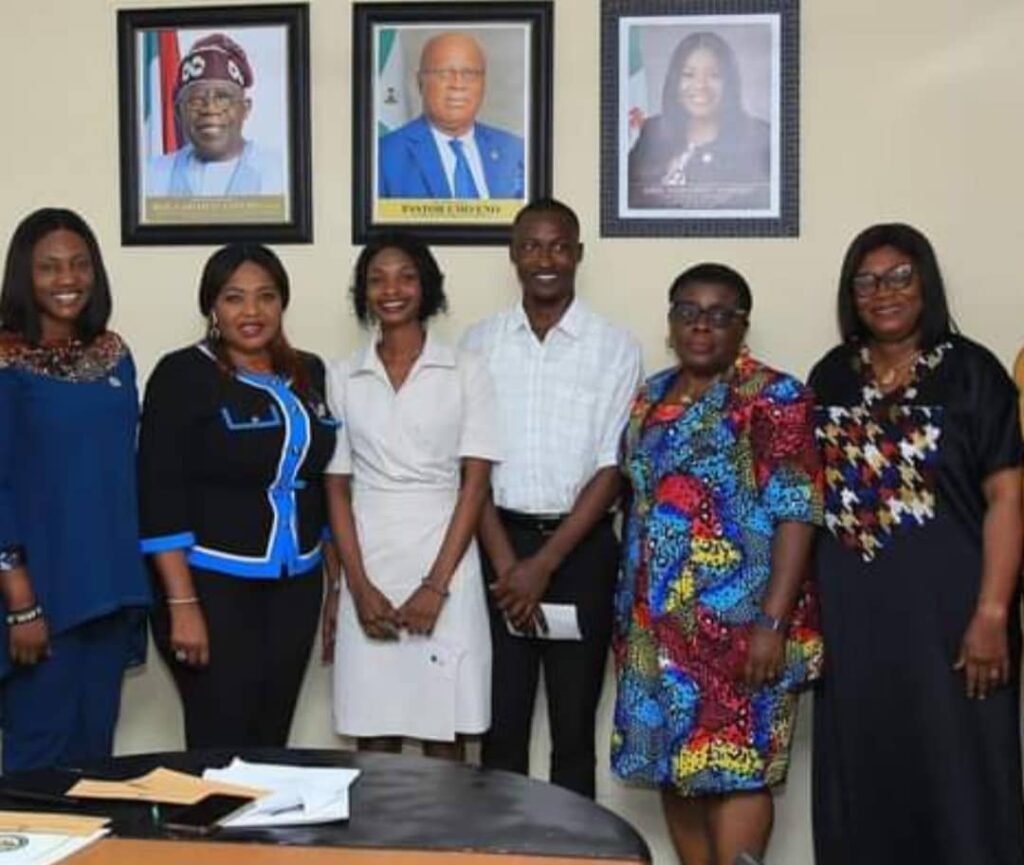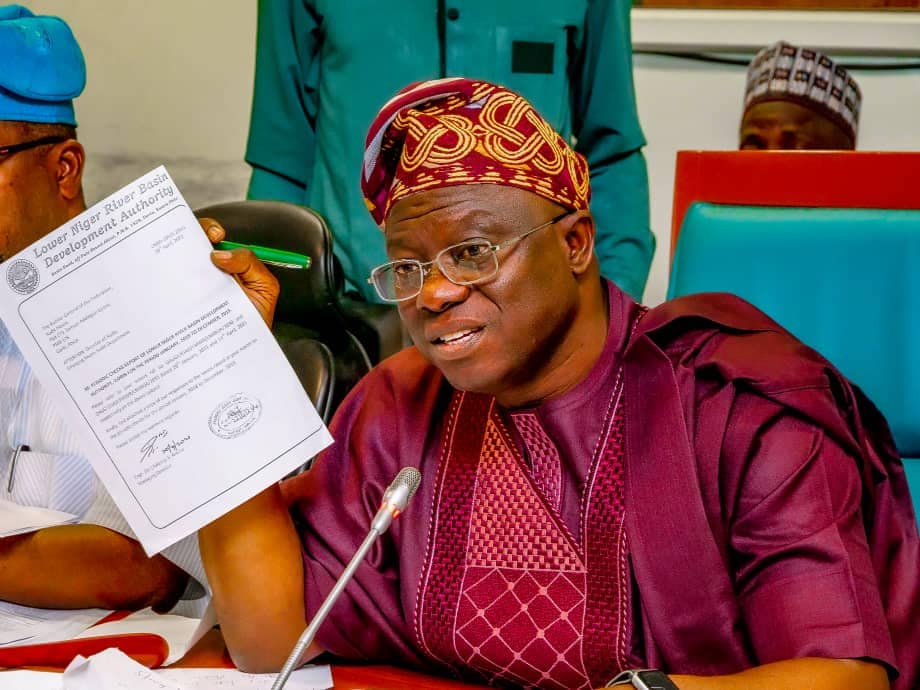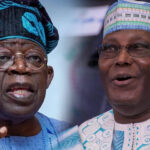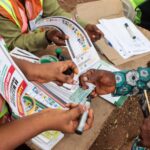
• Cautions Military On Bias, Professionalism • As UN Urges Hitch-Free Poll
• Yiaga Tasks INEC On Shortcomings Of Mock Accreditation In Presidential Election
Barely two weeks to go and with increasing uncertainties around the 2023 general election, the Federal Government has again assured that it would leave nothing to chance in ensuring that the exercise is held in a peaceful atmosphere.
Speaking at the Passing Out Ceremony of Batch 33 at the Nigerian Navy Basic Training School in Onne, Rivers State, the Minister of Defence, Maj. Gen. Bashir Magashi (rtd) disclosed that the Federal Government has plans afoot to secure every nook and cranny of the country, and thwart hoodlums’ attempts to disrupt the election.
The assurance came as the United Nations called on political parties to shun violence while stressing the need to mainstream the Sustainable Development Goals (SDGs) in their manifestoes.
At a recent roundtable with representatives of 10 registered political parties set to participate in the forthcoming presidential and other elections, the UN Resident and Humanitarian Coordinator in Nigeria, Matthias Schmale, called on political parties to work towards credible, transparent, and peaceful elections in the country.
The UN Chief encouraged all actors to calm tensions and avoid violence before, during, and after the election, noting that the United Nations will continue to engage proactively with the government and other critical stakeholders at both national and state levels.
On another hand, Yiaga Africa, a Civil Society Organisation (CSO), yesterday, called on the Independent National Electoral Commission (INEC) to address challenges witnessed in the mock accreditation to ensure that observed shortcomings do not reoccur during the presidential election.
Executive Director, Yiaga Africa, Samson Itodo made the call while presenting the organisation’s report on Bimodal Voters Accreditation System (BVAS) Testing, Mock Accreditation, and Electronic Transmission of accreditation data in Abuja.
Itodo regretted that the mock exercise confirmed that INEC assigned registered voters to new polling units without prior information to the voters, revealing a potential operational challenge that the migration of voters to polling units could pose on election day when voters are unable to locate their polling units.
At the Passing Out Ceremony of Batch 33 of the Nigerian Navy Basic Training School in Onne, Magashi warned military personnel to be professional and avoid acts that would bring the armed forces to disrepute while on election duty.
Magashi, who was represented by the Chief of Air Staff, Air Marshal Isiaka Amao, noted that although the military is not the lead organisation in the poll, it will ensure that every activity during the election is carried out in order. He assured of plans to secure every state and ensure that hoodlums will not disrupt the election.
“The military is not the lead organisation but the police. However, we are at the periphery to ensure that every activity during the election is carried out in order. We will also secure every state to ensure that hoodlums will not disrupt the election.
“Certainly in a few days from today, the 2023 general election will take place all over the country and some of you will be deployed to support as part of the military aide to civil authority. You must be professional and avoid acts that will bring the Armed Forces to disrepute.”
The defence minister also charged the 1, 562 trainee ratings to integrate appropriately in developing competency and capabilities towards maximising their potential.
He commended the trainees, saying that they were joining the service at a time that the country requires such traits, particularly in members of the Armed Forces to effectively combat present security challenges across the country.
“The Nigerian Navy Basic Training School, Onne has, over the years, maintained the mandate of transforming civilians into professional and competent ratings. I am aware that over the years the trainees are involved in best practices to face contemporary challenges involved in meeting global standards. I am convinced that you have acquired the requisite knowledge and the capacity necessary for effecting the execution of kinetic means of resolving conflicts … I, therefore, urge you to effectively utilise the acquired skill in the discharge of your duty in support of national security,” Magashi said.
Addressing the roundtable with representatives of 10 registered political parties, Schmale said: “With attendees from across the political spectrum, this is a promising sign for the commitment of Nigeria to the 2030 Agenda for Sustainable Development – whatever the outcome of the upcoming elections.”
He added that the 2030 Agenda for Sustainable Development was adopted in the UN General Assembly in 2015, by 193 member states including Nigeria. He noted that at the heart of the 2030, Agenda was 17 indivisible SDGs.
“Together, this set of interconnected goals sets out a vision for a secure world free from poverty and hunger, with full and productive employment, access to quality education and universal health coverage, the achievement of gender equality, and the empowerment of all women and girls, and an end to environmental degradation,” said the UN Resident Coordinator.
He further stressed the need for political parties to reflect the SDGs in their manifestoes, noting that there is an urgent need to rescue the SDGs and accelerate progress towards the achievement of the goals by 2030.
Representatives of political parties at the meeting demonstrated awareness of the SDGs and provided the linkages between their parties’ programmes and the SDGs. They advocated for renewable energy, social justice, eradication of poverty, social protection, including good health and quality education, and gender equality.
The roundtable was attended by representatives of Action Alliance (AA), Africa Action Congress (AAC), Action Democratic Party (ADC), Boot Party, Labour Party, National Rescue Movement (NRM), People’s Redemption Party (PRP), Peoples Democratic Party (PDP), Social Democratic Party (SDP), and Young Progressive Party (YPP).
Meanwhile, Itodo said to deliver on the expectations of Nigerians, the deployment of electoral technologies by INEC must conform to the principles of transparency, accountability, suitability, cost-effectiveness, security, accuracy, and inclusion.
Itodo noted that data and technology would play prominent roles in the 2023 elections, as INEC was relying on electoral technology to enhance the transparency and credibility of the election. He said that tools such as the BVAS and INEC Election Result Viewing portal (IREV) would be deployed for the elections. He tasked INEC to make public, its reports on the set-up and testing of the BVAS and mock accreditation, and also provide updates on steps taken to address challenges identified during the mock accreditation.
“INEC should investigate cases where the BVAS failed to authenticate the biometrics of voters, despite having the names on the register. This will inspire public confidence in the BVAS and IReV.
“As a matter of national emergency, INEC should notify all voters affected by the migration of polling units of changes to their polling units via text messages, emails, and phone calls if possible.
“In addition, a copy of the voter register should be posted across polling units for voters to confirm their polling units. This should be backed by a national campaign on locate and confirm your polling units via online and offline platforms,” he said.
Itodo said there was a need for INEC to replicate the transmission of the accreditation data on the BVAS to the IReV in the general election. He added that transmitting accreditation figures enhances the transparency of elections as it allows citizens to check the consistency of the number of accredited voters recorded on the BVAS and the accreditation figures entered on the result sheets by polling officials.
He said that INEC should educate polling officials on recording and documentation of election figures to avoid discrepancies between the accreditation data uploaded by the BVAS to the IReV, and the figures recorded on the polling units’ result sheets.
He advised INEC to ensure that all the BVAS devices deployed for the mock accreditation were reconfigured to read zero in the field for accreditation before deploying them for the general election.
Itodo disclosed that Yiaga Africa’s recommendations were against the backdrop of INEC’s nationwide accreditation exercise.
The Director of Programmes, Yiaga Africa, Cynthia Mbamalu, noted that in states observed by the group, the BVAS testing was successful, and ICT staff demonstrated good knowledge of the systems and testing guidelines.
She, however, said some devices failed activation and configuration tests due to hardware failures such as problematic cameras, screens, and power buttons.
She noted that the exercise was also blighted by poor Internet connectivity. “Network challenges were experienced mostly in Adamawa, Taraba, Akwa Ibom, and Rivers states. More than half of the locations visited during the four visits experienced network challenges, which hindered the activation of the machines on the days observed. Cases of faulty BVAS devices were reported in states like Sokoto, Edo, and Akwa Ibom, the ICT officials discovered the defective hardware components when they attempted to operate the machines. The dominant hardware defects included non-functioning camera, faulty screen and faulty fingerprint scanner and reports from half of the centres indicate faulty fingerprint scanners.”
Mr. Ezenwa Nwagwu, Board Member, Yiaga Africa reiterated the need for registered voters to utilise platforms provided by INEC to locate and confirm their polling units before election day.
Nwagwu said that this would fast-track the process of voting on election day. He called on the National Assembly to consider further amendments to the Electoral Act 2022 after the 2023 general elections to make the conduct of testing and mock exercises for electoral technologies mandatory, including timelines for the conduct of these exercises.








